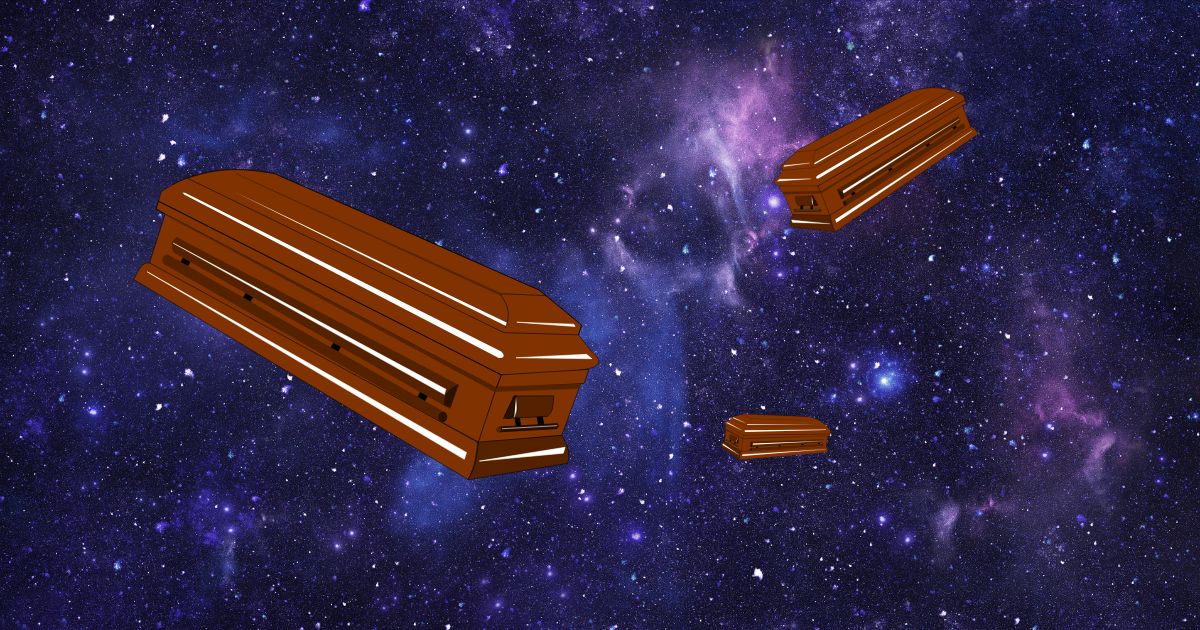Is the World Ready for Deep Space Burials?
So besides the launching of cremated remains into or out orbit as part of a final farewell (an option of such growing popularity that there are businesses built upon the option as a burial alternative), there may soon be legitimate options for deep space burial of intact remains. Popular space travel, long-term missions and other circumstances may bring the necessity to the forefront in the near future.
Star Trek and the sci fi genre have long featured the practice artistically; how faithful to reality are such depictions? In some shows, bodies explode from the lack of atmospheric pressure; in others, remains float unprotected gently into space, accidentally or otherwise, and just sort of peacefully float away, intact.
What’s the real story?
Human Bodies Are Tough
No exploding corpses after all: the absence of the pressurized atmosphere isn’t extreme enough to pull the human body apart, as the skin and connective tissues are sufficiently tough to hold things together. Even so, there would be other immediate effects, as well as long-term ones, contributing to the degradation of remains… though it wouldn’t be decomposition on earthly terms.
Immediate loss of pressure would draw out gases within the digestive tract, as well as oxygen in the tissues and blood. While this process might cause some damage, it wouldn’t be catastrophic. Rapid dehydration would follow, fluids in the body boiling off as the gases dissipate, and due to the extremes of temperature – at the low end, hundreds of degrees below Fahrenheit – any remaining moisture in the body would freeze.
The result would be a sort of preserved, dessicated, partially frozen mummy which, depending on its trajectory after being ejected into space, might some day pass within proximity to cosmic features where temperatures are significantly higher and could cause other damage… such as within proximity to a star, like our sun.
No Putrefaction
And there wouldn’t be the bacterial helping hand we’re used to for the sort of decomp we typically experience on earth. For one thing, there’s no oxygen in space to help with the processes of bacterial propagation in the gut, that primary device that directs things so expeditiously on the surface; none of the natural means would be available to aid putrefaction. Space’s extreme temperatures don’t support propagation of the microorganisms in our gut that typically drive the processes we associate with the body’s breakdown.
But at a more stately pace, over time, interstellar radiation would take over, contributing to the breakdown of tissues by the deconstruction of DNA and other cellular materials. There could also be collisions from micrometeoroids and other space debris, though most of them would be relatively small particles – space dust, really. Ultimately, the body will disintegrate, if slowly.
And should the remains be protected by a space casket of some sort, a vessel for the protection or in honor of the deceased, preservation might be possible for considerably longer, depending on the nature of the materials and any preparation of the body.
A regal ending, in theory if nothing else, to find a final resting place among the stars of our origins.




